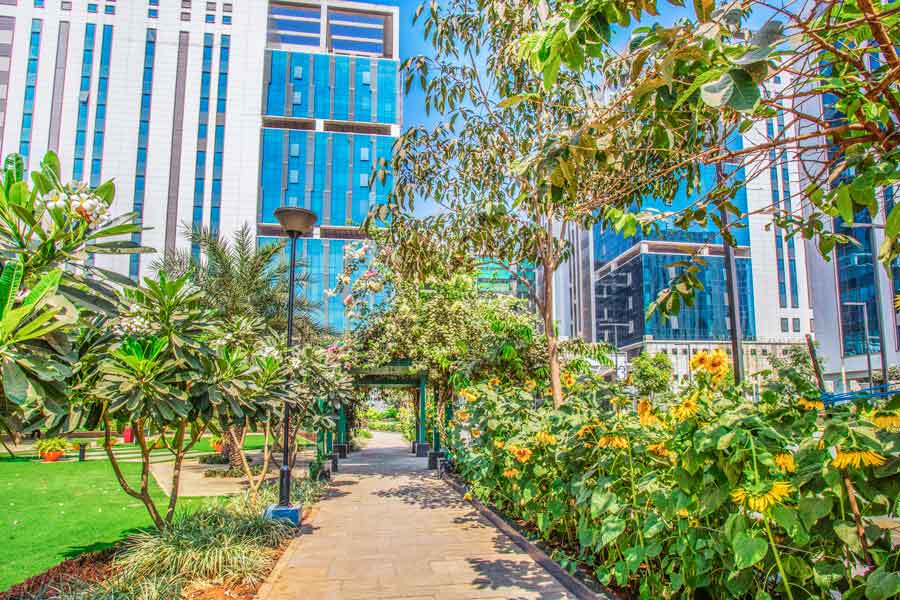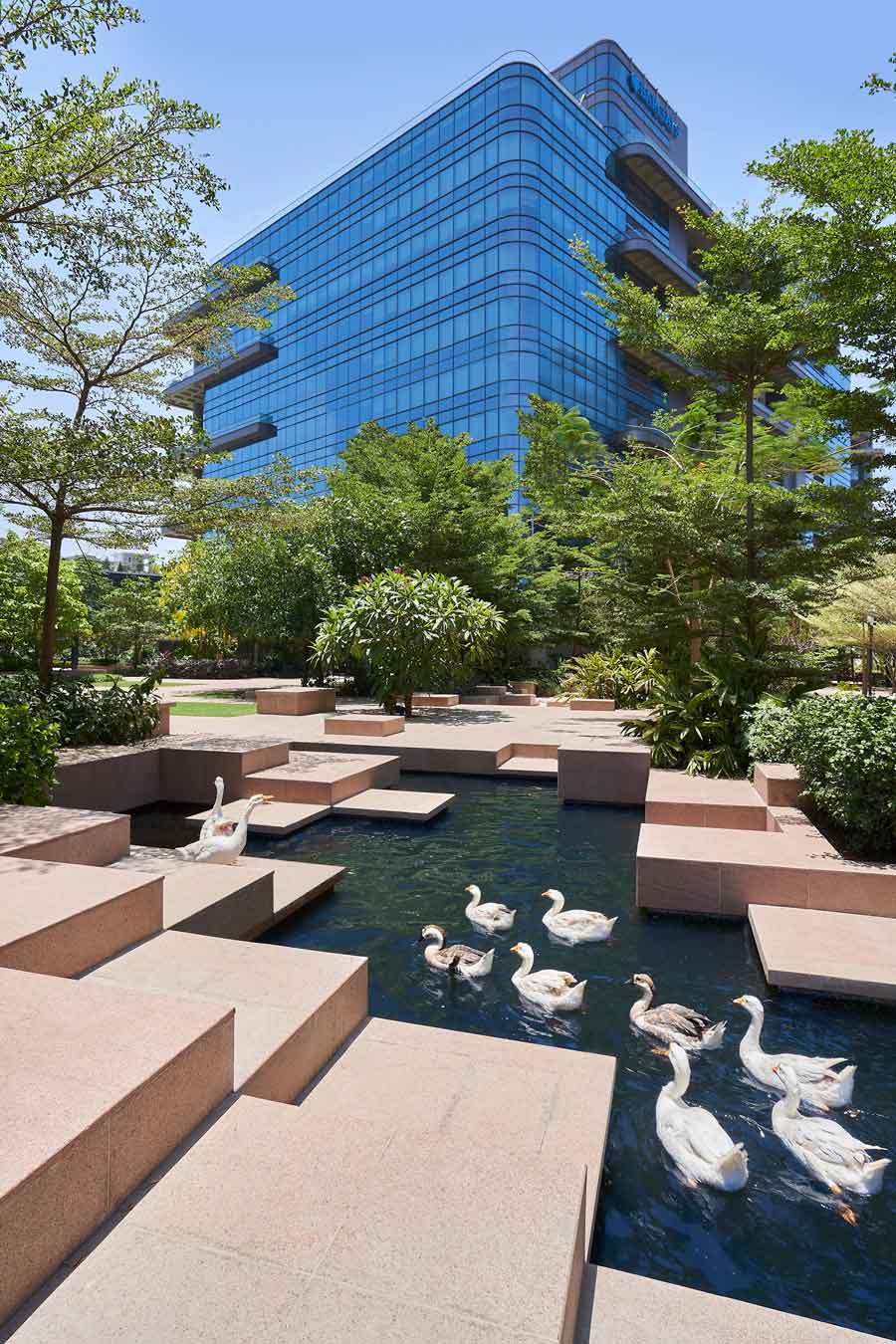ESG, a Key Lever for Business Growth 19 February 2024
In today's dynamic business landscape, where environmental concerns are at the forefront of global discussions, the Indian real estate sector has embraced a transformative shift towards sustainability. One of the pioneering Indian sectors – real estate is revolutionizing the industry through Grade A ecosystems of green office spaces while contributing to a thriving economy. India is currently ranked third in the world with more than 752 LEED-certified properties after China in Canada, basis USGBC Annual list.
A holistic, sustainability-driven, Grade A ecosystem is fostering business growth across India, through several initiatives:
Setting Industry Standards for Green Office Ecosystems
The real estate industry’s shift towards sustainability is marked by a growing preference for green office spaces that seamlessly blend eco-consciousness with industry-relevant standards. These spaces are designed with a deep consideration for energy efficiency, resource conservation, and reduced carbon footprint. By incorporating advanced technologies and innovative architectural designs, green office spaces not only promote a healthier environment but also set a new benchmark for industry standards, inspiring others to follow suit in creating sustainable workspaces.

Sustainable Practices at the Core
Getting these green standards in place requires collaboration. Real estate professionals, architects, environmental experts, and regulators need to join forces. They will need to establish clear metrics for energy usage, water management, indoor air quality, and all-around sustainability. Certifications offered by esteemed organizations like LEED & IGBC add weight, serving as a seal of approval for genuine green credentials. As the demand for sustainable workplaces surges, these green office space standards are pivotal. Those who construct and use these spaces are shaping a cleaner and greener future.
Preferred Choice for Organizations and Employees
Grade A green office spaces' success transcends mere adherence to environmental benchmarks; they have evolved into the favoured choice for both organizations and employees. In today's professional landscape, there is profound esteem for spaces that harmonize with sustainability-oriented principles. Consequently, employee preferences for eco-conscious work environments influence organizational decisions significantly. Abundant greenery, natural illumination, and fresh air collectively exert a positive influence on the overall work milieu, fostering heightened creativity, engagement, and job satisfaction.
Fostering Business Growth
These practices have not only resulted in positive environmental impact but also spurred humungous business growth and aided economic growth. The adoption of sustainable practices has led to the creation of jobs in various sectors, ranging from renewable energy installation to eco-friendly construction materials.
The influx of businesses into these spaces has led to increased foot traffic in areas within these ecosystems, benefiting local businesses such as cafes, restaurants, and retail stores around. The growth of these businesses, in turn, generates employment opportunities and contributes to the overall economic vitality of the region.

In conclusion
On the path to sustainability, the Grade A ecosystems within green office spaces adeptly strike a harmonious equilibrium between modern infrastructure and ecological accountability. However, the influence of these spaces extends beyond environmental preservation. Responsible businesses prioritize eco-friendly and healthy workspaces that align with their values, ensuring sustainable growth in demand for these thoughtfully designed environments.

Vinod Rohira
MD & CEO - Commercial Real Estate
K Raheja Corp


